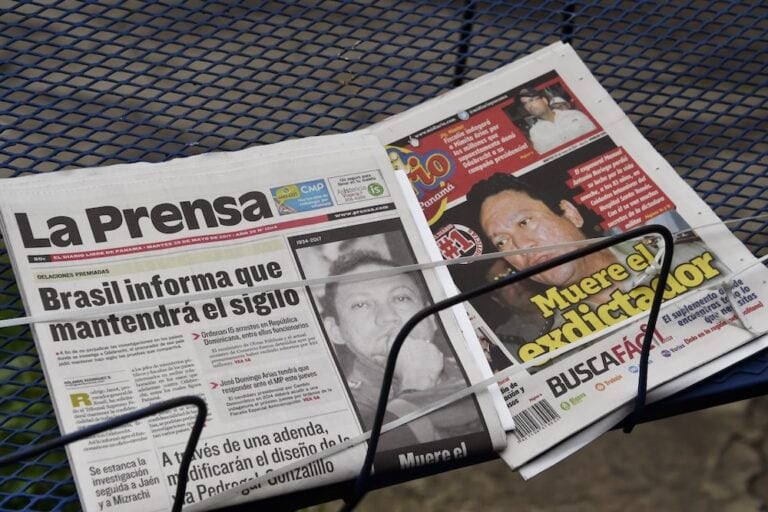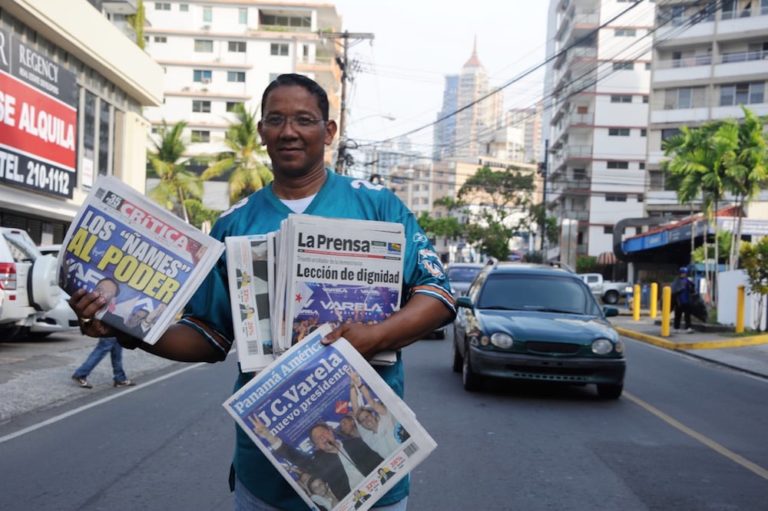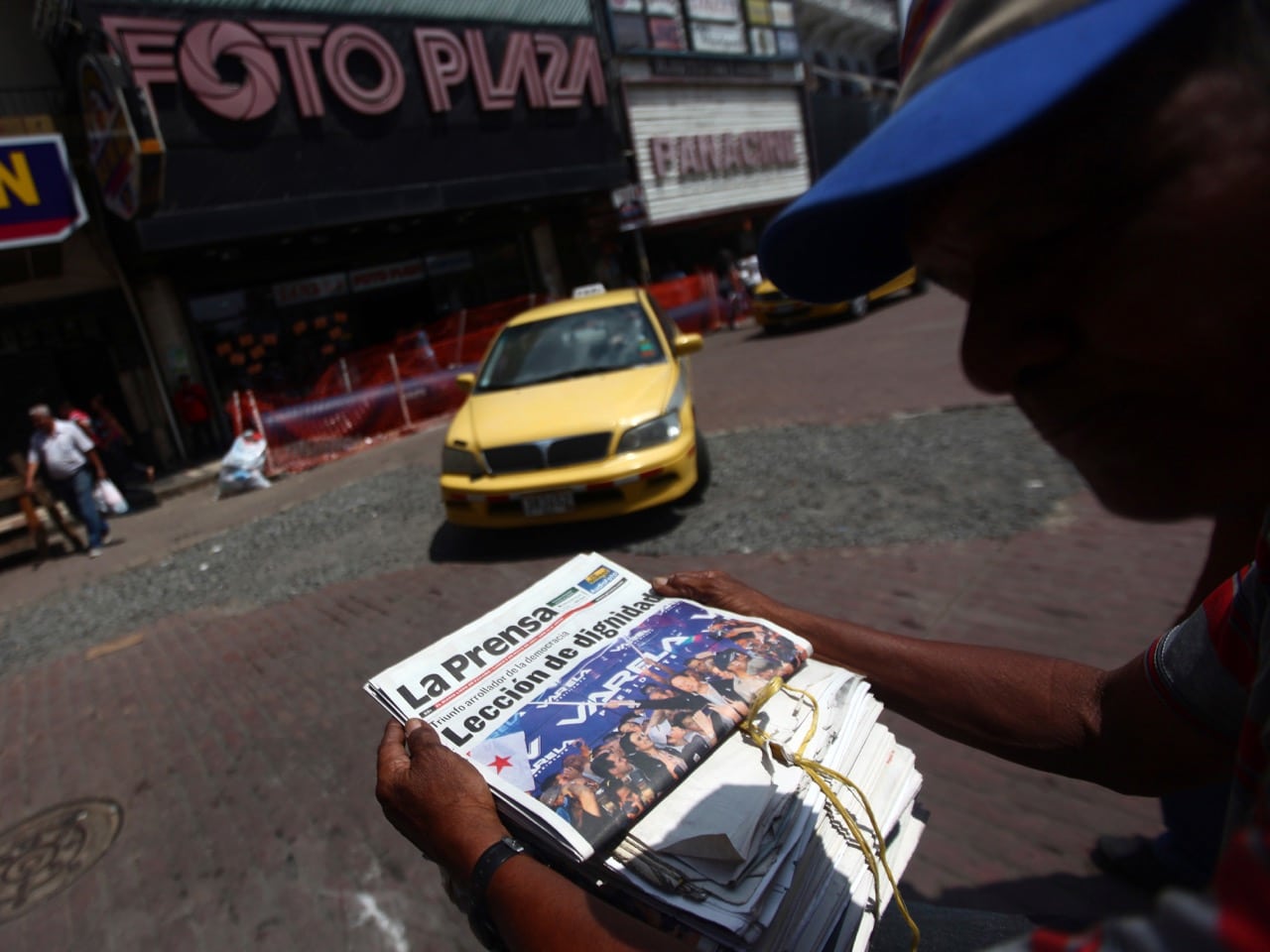(RSF/IFEX) – The following is a 30 May 2001 RSF press release: In a letter to President of the Second Superior Tribunal Wilfredo Sáenz, Reporters sans frontières (RSF, www.rsf.org) expressed its concern over the sentencing of Marcelino Rodríguez, former journalist for El Siglo, to sixteen months in prison for “slander and damages”, a sentence exchangeable […]
(RSF/IFEX) – The following is a 30 May 2001 RSF press release:
In a letter to President of the Second Superior Tribunal Wilfredo Sáenz, Reporters sans frontières (RSF, www.rsf.org) expressed its concern over the sentencing of Marcelino Rodríguez, former journalist for El Siglo, to sixteen months in prison for “slander and damages”, a sentence exchangeable for a fine of 1,000 balboas (1,100 euros). RSF has urged that no prison sentence beimposed on the journalist on appeal. “Prison sentences for press offences should be definitively rejected as they force journalists to resort to self-censorship,” declared Robert Ménard, RSF’s secretary-general. Ménard noted that in a January 2000 document, the United Nations special rapporteur for freedom of expression clearly established that “imprisonment as punishment for the peaceful expression of an opinion constitutes a serious violation of human rights.”
According to the information collected by RSF, on 23 May 2001 Marcelino Rodríguez was sentenced to sixteen months in prison, a sentence exchangeable for a fine of US$1,000. He was further prohibited from carrying out any public functions during this time period. The journalist’s lawyer announced that he will appeal the sentence. Legal action was initiated against the journalist by Alma Montenegro de Fletcher, attorney for the state. In two articles published on 1 and 3 August 1998, the journalist reported that the state’s representative was the owner of a property in the Panama Canal region, previously under American control. This news was subsequently revealed to be false. The journalist published a clarifying note, explaining that the authorities who oversee the region had refused to confirm or deny the information. Alma Montenegro de Fletcher felt that her honour had come under attack because of these reports. The attorney who prepared the file felt that the journalist had not intended to cause any harm and asked the first level court to stay the case against the journalist.
In a December 2000 press release, RSF asked Panamanian authorities to do everything in their power to have prison sentences for press offences removed from the country’s legislation. The organisation had remarked that such punishment is out of proportion to the offence, has an inhibitory effect on journalists, and is therefore harmful to their right to inform and the right of society as a whole to be informed. Approximately sixty journalists are currently facing legal actions for “insult” (“desacato”) or “slander and damages”. A number of the complaints have been filed by Attorney General José Antonio Sossa, who has become the press’s “nightmare”.


